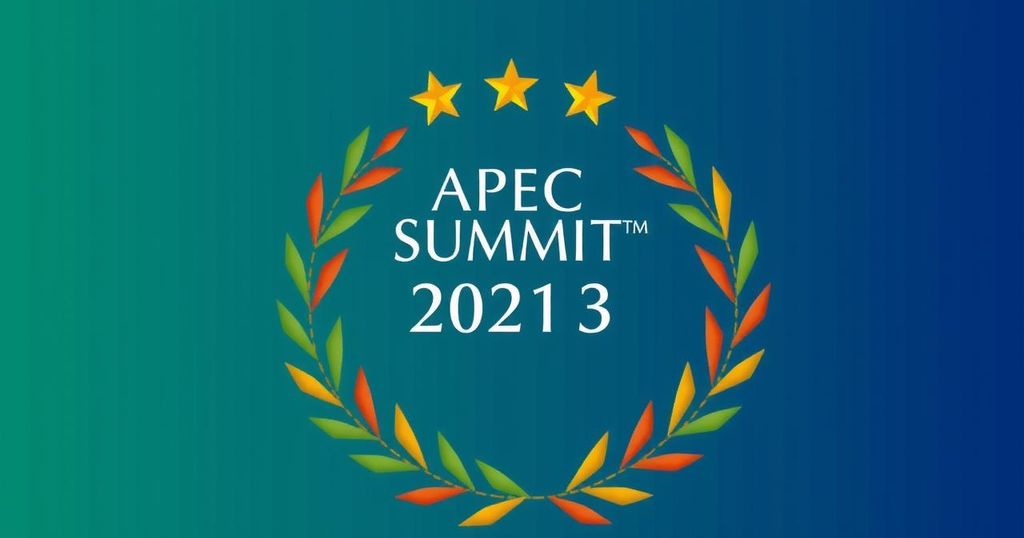Global news
Politics
AMERICA, AP, ASIA - PACIFIC ECONOMIC COOPERATION, ASSOCIATED PRESS, BIDEN, CORRUPTION, DEMOCRACY, DONALD TRUMP, INTERNATIONAL RELATIONS, JOE BIDEN, NORTH AMERICA, PACIFIC, PERU, SHI, SHIGERU ISHIBA, SOUTH AMERICA, TRADE RELATIONS, TRUMP WHIPLASH LOOMS, UNITED STATES, XI, XI FRONT AND CENTER, XI JINPING
Isaac Bennett
0 Comments
APEC Summit in Peru Highlights Tensions in U.S.-China Trade Relations
The APEC summit in Lima concluded with leaders, including President Biden and President Xi, discussing global economic engagement amid U.S.-China trade tensions. Xi’s prominent role emphasized China’s commitment to globalization, while Biden’s symbolic moment during the family photo reflected uncertainties about U.S. trade policy under Trump. The summit marked a critical juncture as Biden approached the end of his presidency.
The Asia-Pacific Economic Cooperation (APEC) forum concluded in Lima, Peru, marking a pivotal moment in global economic discourse. Attended by leaders such as U.S. President Joe Biden, Chinese President Xi Jinping, and Japanese Prime Minister Shigeru Ishiba, the summit emphasized economic engagement amidst escalating tensions surrounding free trade. Notably, the absence of President Biden from the traditional APEC family photo created a symbolic narrative reflecting the contentious climate, particularly with President-elect Donald Trump’s impending shift in U.S. trade policy. President Xi positioned himself at the forefront, advocating for globalization while unveiling a significant $1.3 billion megaport investment in Peru. His assertive stance on rejecting protectionism emphasized China’s commitment to global trade despite the macroeconomic challenges posed by the United States’ potential withdrawal from its leadership role in international trade. As discussions pivoted on growing U.S.-China trade tensions, Biden and Xi engaged in crucial dialogues, representing the conclusion of Biden’s tenure in a context defined by friction and competition between the two nations. Biden’s departure from the stage, amid reporters’ inquiries about his future in global affairs, encapsulated the summit’s significance and the uncertain trajectory of U.S. foreign economic policy.
The APEC forum serves as a crucial platform for leaders from the Asia-Pacific region to discuss and promote economic collaboration. This year’s meeting took place under unique circumstances, with the U.S. electoral transition leading to concerns about the future of international trade policy, particularly the potential withdrawal of American influence under President-elect Trump. The summit’s focus on trade rivalry highlighted the strategic landscape in which these global leaders operate, particularly concerning the U.S. and China’s economic interactions.
The APEC summit in Peru underscored the delicate balance of global economic relations amidst political uncertainties. As leaders navigated discussions prioritizing free trade and economic cooperation, the emerging tensions between the U.S. and China became increasingly prominent. With President Biden poised to exit the global stage amid significant transformations in America’s trade strategy, the future of APEC remains uncertain, highlighting the vital need for continued dialogue among the Pacific economies.
Original Source: www.usnews.com




Post Comment